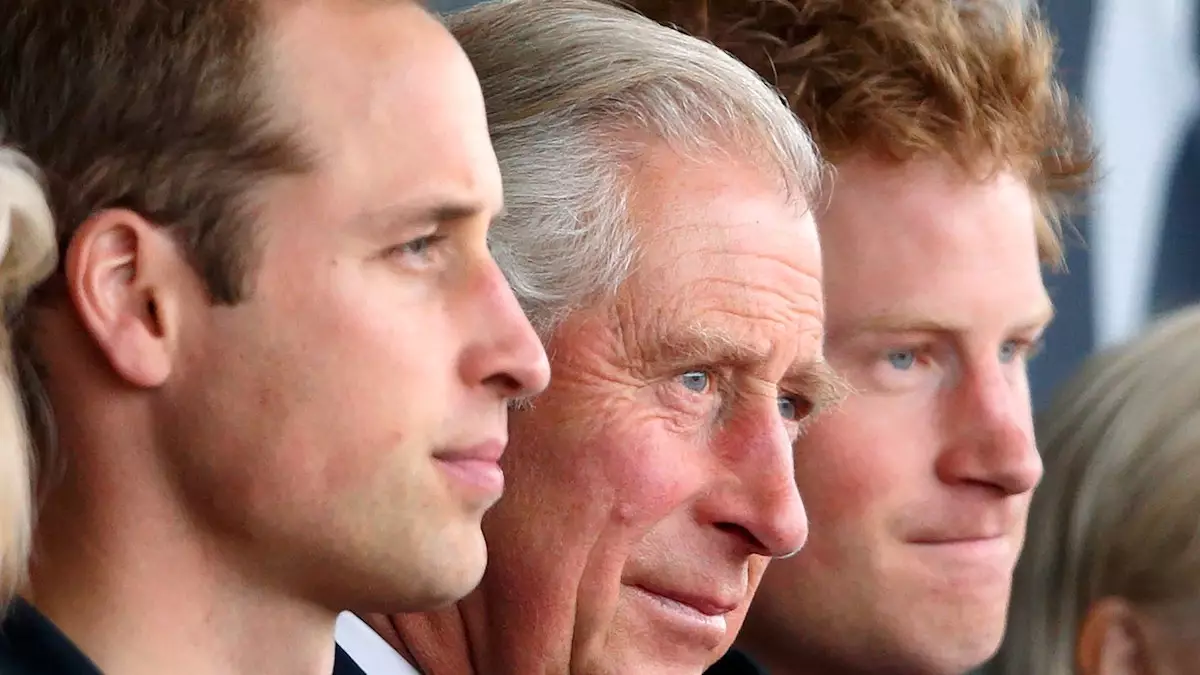The relationship dynamics within the British royal family have captured the public’s imagination, particularly the fraught interactions between Prince Harry, his father King Charles III, and his brother, Prince William. As Prince Harry continues to navigate his complex role following his high-profile departure from royal duties, the nuances underlying this family strife become increasingly significant.
Recent months have highlighted an ongoing tension between Prince Harry and the royal family, culminating in a series of visits to the UK that have not resulted in fruitful reconciliations. Harry’s touchpoints in Britain included the Invictus Games in May and the WellChild Awards in September. However, these occasions have failed to pave the way for meaningful engagement with his father, King Charles. The last time Harry saw his father in person was in February, coinciding with the King’s cancer diagnosis. The gravity of the situation cannot be understated; dealing with health issues can strain familial bonds, and in this case, it seemingly complicated an already delicate relationship.
At the heart of the matter is a general reluctance to engage deeply during such a trying time, both for King Charles, who is involved in his treatment regimen, and for Harry, who has a plethora of concerns he wishes to address. Royal biographer Robert Hardman sheds light on these complexities, suggesting that while face-to-face meetings are encouraged, they often become too emotionally charged to facilitate constructive discussion.
When examining the issues between Harry and the royal family, one cannot overlook the growing gulf between him and Prince William. In fact, the last occasion where the brothers were in proximity was at their uncle’s funeral, yet they did not share a seat, encapsulating their estrangement. It appears that any potential for reconciliation may be contingent on the involvement of William, as emphasized by Hardman. Simply put, the dynamics at play reach beyond just Harry and Charles; William’s input is deemed essential in any dialogue that occurs.
This situation raises questions about the structure of royal communication, where personal grievances intermingle with public perceptions and duty. The reality is that the future of the monarchy and its relationships hinges on these turbulent dynamics, making it imperative for all parties to recognize the significance of their roles in fostering dialogue.
Compounding the rift is the ongoing legal action initiated by Harry concerning his security in the UK. His move to the United States with Meghan Markle in 2020 has come with its own complications, notably regarding taxpayer-funded protection. Harry’s pushback against government decisions that affect his security arrangements illustrates a persistent dissatisfaction with his perceived treatment by royal authorities.
Hardman points out the precariousness of Harry’s legal situation, marking it as an uncomfortable position for King Charles. The irony that King Charles’s son is in conflict within the king’s legal realm offers a disturbing picture of family relations. The potential fallout from information shared during a legal case could escalate tensions further, leading to a situation where Harry’s relationship with his father might face scrutiny in the public eye, should any confidential conversations be unveiled.
As the world watches, the future of Harry’s relationship with his family remains uncertain. The complex interplay of personal grievances, institutional responsibilities, and familial loyalty highlights the difficulty of reconciling these ties. The question is whether a pathway to mending this rift can be found amid their busy lives and ongoing challenges.
The notion of reconciliation remains fraught with complications, particularly given the necessity for mutual willingness among Harry, Charles, and William to engage honestly and openly. Until such a time arises, the turbulent ties of Prince Harry and his family will continue to dominate public conversation, representing not only a simmering tension within one family but also a reflection of the broader challenges faced by modern institutions grappling with legacies, identity, and personal agency. This multifaceted situation serves as a poignant reminder of the complexities inherent in any family, especially one as publicly scrutinized as the British royal family.

